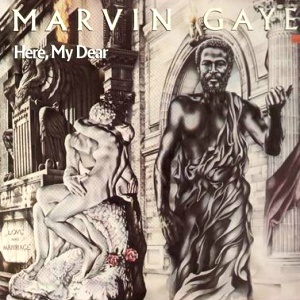
- Format: FLAC

Pre-dating the voyeuristic tendencies of reality television by 20 years, Here, My Dear is the sound of divorce on record — exposed in all of its tender-nerve glory for the world to consume. During the amazing success of I Want You and his stellar Live at the London Palladium album, Marvin Gaye was served with divorce papers from his then-wife Anna Gordy Gaye (sister of Motown Records founder Berry Gordy). One of the conditions of the settlement was that Gordy Gaye would receive an extensive percentage of royalties as well as a portion of the advance for his next album. Initially, Gaye was contemplating giving less than his best effort, as he wouldn't stand to receive any money, but then reconsidered at the last moment. The result is a two-disc-long confessional on the deterioration of their marriage; starting from the opening notes of the title track, Gaye viciously cuts with every lyric deeper into an explanation of why the relationship died the way it did. Gaye uses the album, right down to its packaging, to exorcise his personal demons with subtle visual digs and less-than-subtle lyrical attacks. The inner sleeve had a pseudo-board-game-like illustration entitled "Judgment," in which a man's hand passes a record to a woman's. One side of the sleeve has Gaye's music and recording equipment, while the other side of the board included jewelry and other luxurious amenities. Musically the album retains the high standards Gaye set in the early '70s, but you can hear the agonizing strain of recent events in his voice, to the point where even several vocal overdubs can't save his delivery. Stripped to its bare essence, Here, My Dear is no less than brilliantly unsettling and a perfect cauterization to a decade filled with personal turmoil.